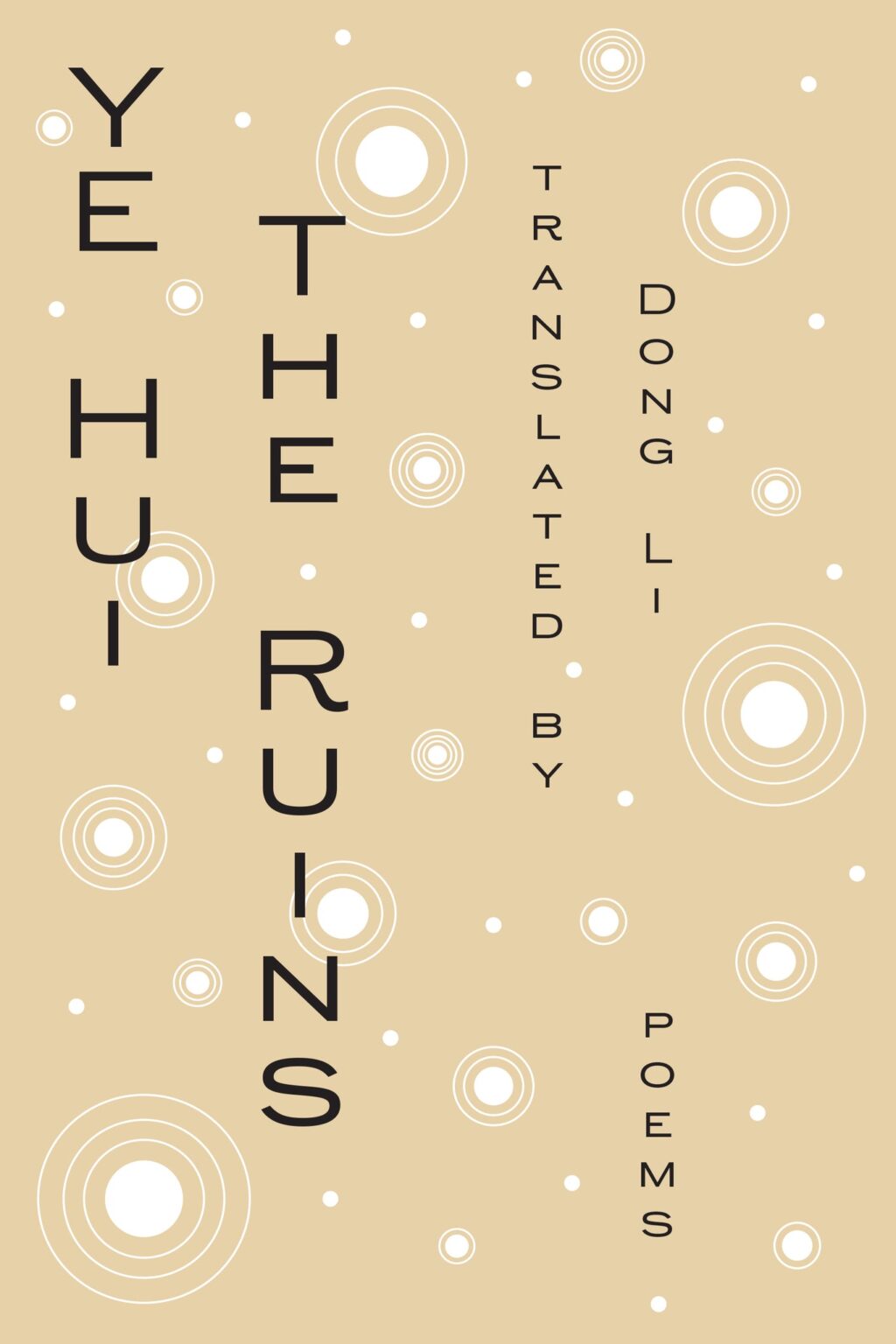That translator Dong Li calls Chinese poet Ye Hui “metaphysical” in his introduction to The Ruins—a characterisation repeated in the book’s marketing material—might seem challenging, but in the fact the poems, while not exactly straightforward or immediately obvious, are—for most part—eminently accessible and interesting.
Ye Hui will often start with a line or two that appear quite clear, as in “The Prophecy”:
In the yard, two birds perch in the tree
Which means it will snow tomorrow
… only to become progressively more veiled, until it concludes
A lady picks a flower
That we’ve never seen
Its blinding blue, bluer
Than the cold and the night
Similarly, early lines in “A Poem on the Chinese Perspective on Fate”
A prostitute says to a policeman
I don’t want to do this but have no other way
… concludes with
Once I saw the Yellow River
A flooded lifeline, but I cannot figure out
Whether it has anything to do with me
“The Correspondence” begins
After you look in the mirror
The person in it leaves from behind, feeling dizzy
Someone almost identical to you
Yet fate puts the birthmark on your left cheek
And on his right
But he doesn’t care, and he does have
A name like yours
… before the reflection goes off to live another life.
While some of the topics do indeed veer on the metaphysical, others—such as the poet’s father—seemed closer to ground.
After lying down for months, my father died
For no reason, the laurels in the yard
bloomed in full
The descriptive and evocative “Shanghai by Night”
On the Suzhou River
Rows of small boats have fallen asleep
Only ghosts appear near the warehouse, the smell
Of opium stronger than imported kerosene, cigars
Emit a scent of cold creams, …
… turns out to be about the run-up to World War II:
The war is approaching, Shanghai withdraws
Like a foreign cruise ship moored at the harbor
At other times, Ye Hui waxes colloquial:
Life is an illusion
An older poet tells me
(He just woke from a nap)
There is something to be said for Dong Li’s conclusion that after reading these poems, “you feel, for a moment, as if you were Chinese.”
This edition is bilingual, with the original Chinese on the left-hand page. This isn’t much use for people that can’t read Chinese (while the translation is perhaps unnecessary for those that do), but it does allow one (via machine translation at least) to gain some idea of what the translator was doing. A request to AI translate the first four Chinese lines of “The Prophecy”, rendered by Dong Li as:
In the yard, two birds perch in the tree
Which means it will snow tomorrow
Fire in the stove, leaves still fall
Someone knocks on the door
… returns
Two birds rest on the tree in the courtyard—
a sign that snow is coming.
The fire glows in the hearth, leaves still drift down.
Someone is knocking at the door, and then …
Choices are what translating poetry is all about.

